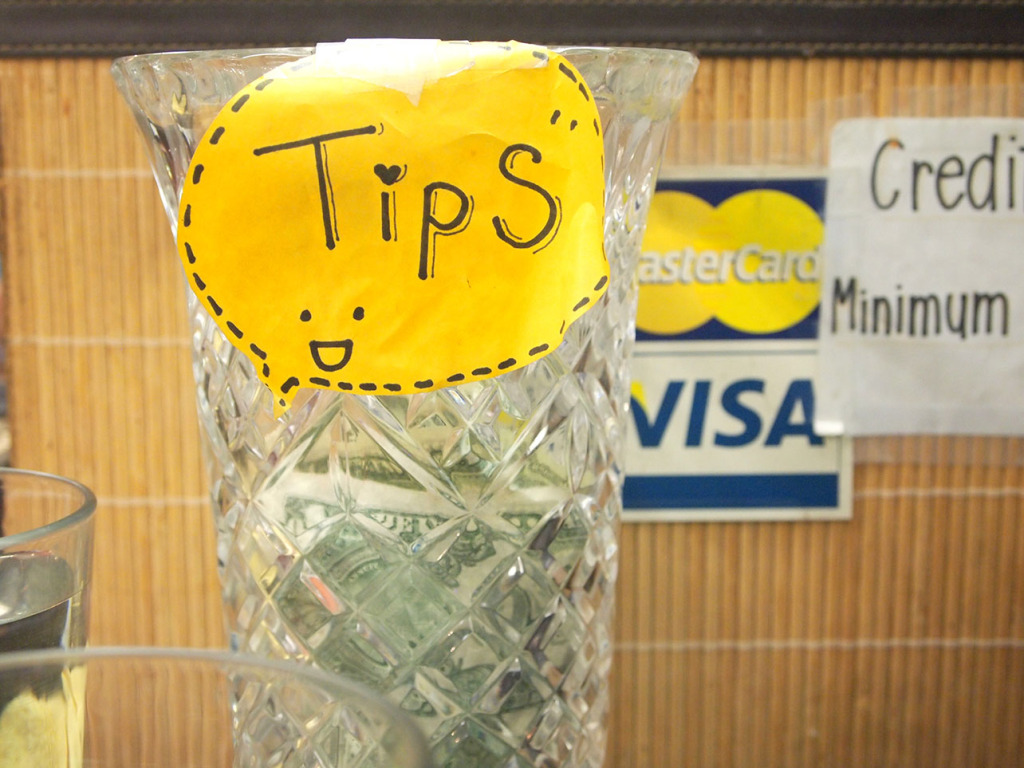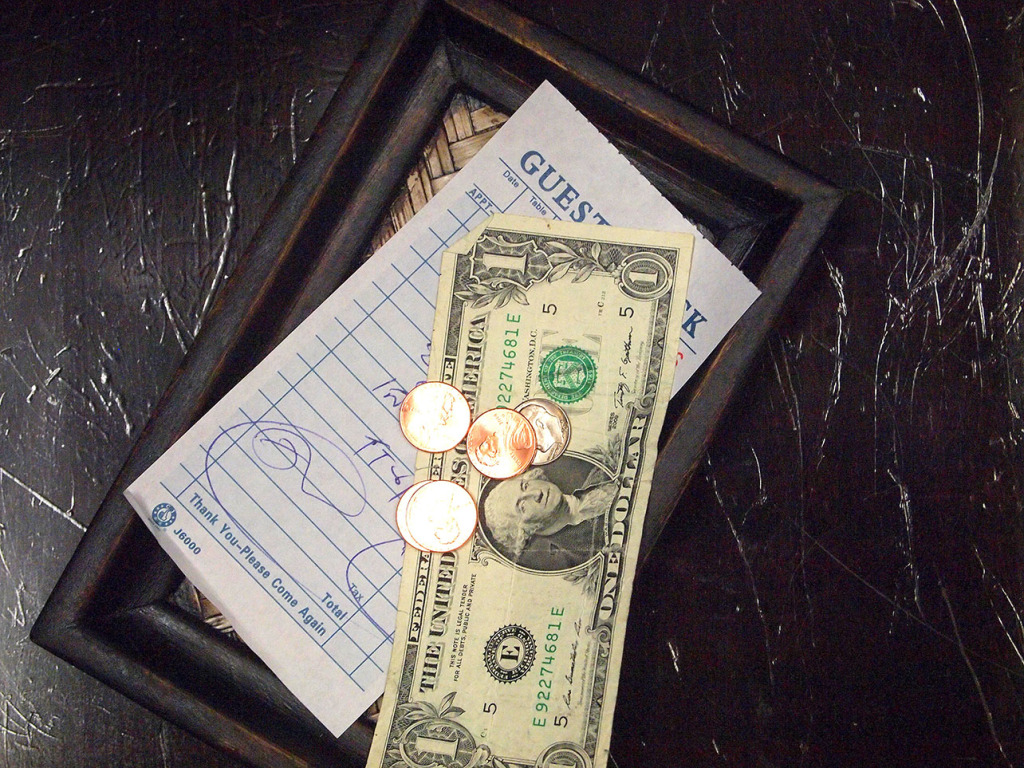Five restaurants in the Bay Area are planning on substituting a 20% service charge for tipping (here’s the Daily Cal news article), and I support this change. Having been fascinated by the custom of tipping custom for years, I’ve come up with several downsides of tipping.
Tipping is a complicated system, and honestly, no one knows the socially acceptable tip for bad service or how to show your appreciation when you’re low on cash. Experts have been exploring the tipping question, but each has a different opinion. According to Emily Post Etipedia’s General Tipping Guides, the proper way to tip for sit-down wait service is 15-20% pre-tax and a little less (10% pre-tax) for buffet wait service. However, the U.S. News & World Report says that the golden range is 10-20%. Also, it’s apparently okay to feel good about not leaving a tip for an abominable service according to Your Ultimate Tipping Guide. The tipping culture also varies among countries. For example, restaurants in Japan don’t accept tips, since the cost of service is already included in the price. Because tipping is such a perplexing practice, someone invented an app called GlobeTipping that helps you travel smoothly without offending or over-tipping anyone, but since there’s no one standard that’s commonly agreed on, it’s not as accurate as you’d like it to be.

Photo by Laura Lim
One defense of tipping is that it supplements the income of waitstaff. However, you’ll be surprised to find out that, despite the fact that the standard tip has been increasing over the years, nearly 15% of America’s 2.4 million waitstaff still live in poverty, according to a study reported by The Wall Street Journal.
Not only does tipping fail to help increase earnings, but it also aggravates inequality. One study showed that waitresses’ tips increase with breast size and with having blonde hair but decrease with body size and age, regardless of the service provided. Customers discriminate against black service providers by tipping them less than what they would tip white service providers despite their own races in another experiment.

Photo by Laura Lim
From a customer’s point of view, tipping might guarantee better service. In other words, it gives customers the power to punish the waitstaff for bad services. But does a good/bad tip reflect servers’ attitudes or our own mood and financial situation? ‘Cause to be honest, I’m sick of writing “Sorry, I’m a lil’ low on cash, but you’re amazing :)” next to the total amount and feeling guilty about it.
Tipping is confusing and arbitrary. I think it’s about time we substitute this archaic system with another that promotes equality and improves lives.

